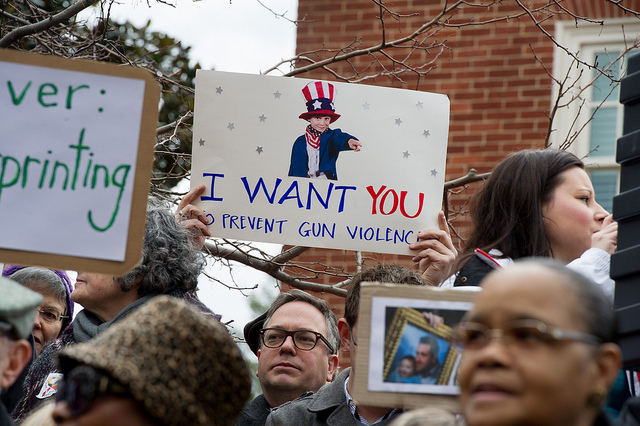
After a mass shooting, we often seek to understand why. Sociologists are well-positioned to help us to make sense of these tragedies. In a recent article for Quartz, Tristan Bridges and Tara Leigh Tober reflect on the importance of American masculinity for understanding the prevalence of mass shootings in the United States.
While the United States does have more guns than many other nations, Bridges and Tober argue that gun access does not fully explain why the United States has more mass shootings. This explanation also does not account for why nearly all mass shootings are committed by men. Bridges and Tober use the concept of “masculinity threat” — when men’s masculinity is called into question — to explain why mass shootings follow a larger pattern. Evidence shows that men who experience masculinity threats are more likely to condone violence, male superiority, and homophobic attitudes.
“Mass shootings follow a consistent pattern: The men who commit them have often experienced what they perceive as masculinity threats. They’re bullied by peers, gay-baited by classmates, and often perceive themselves as unable to live up to societal expectations associated with masculinity, such holding down a steady job, having sexual access to women’s bodies, or being tough or strong. This does not suggest that men are somehow unavoidably more violent than women. But it does suggest that mass shootings need to be seen, in part, as enactments of masculinity.”
Unmasking the role of masculinity in mass shootings is critical because it removes the individualized framing of mass shootings, including equating white shooters with mental health issues but not extending this discussion to persons of color. Since mass shootings are not an individual issue, they cannot be solved by individual solutions. While gun control is one part of the solution to mass shootings in the United States, Bridges and Tober argue we also must recognize the role of masculinity and invest in a new culture of masculinity that is not so deeply invested in dominance and violence.

Comments 2
Cherlynn — November 16, 2017
Provoking! What might a new culture of masculinity look like? Does one exist already for some and not others, perhaps suggesting a differential in access to the "new" by class stratification?
Equating health issues with whites but not blacks is a stellar point. Could you elaborate?
Cherlynn — November 16, 2017
Final commet: It was reassuring to find justification against the largely held belief that men are inherently violent.